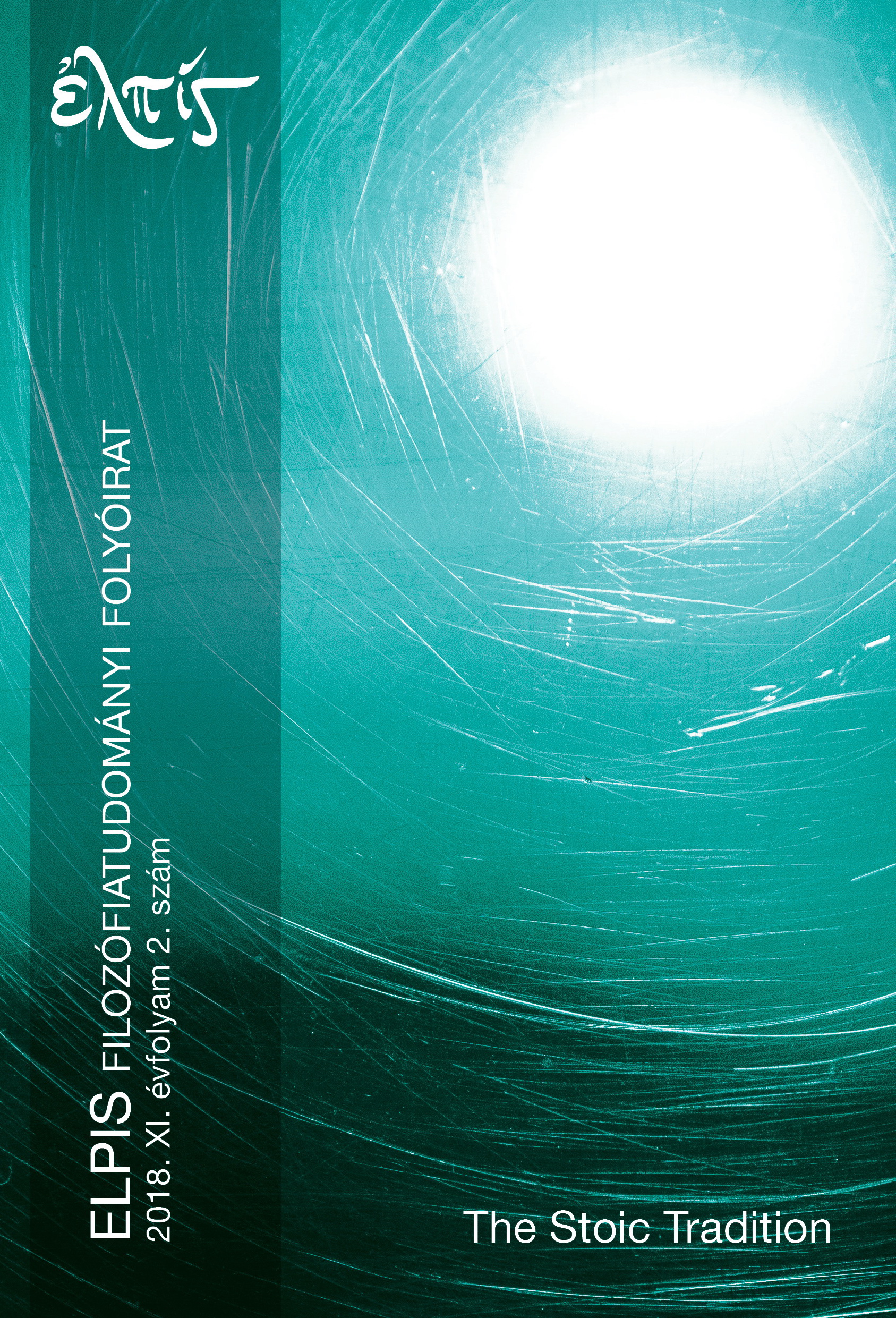Contradictions Around the Stoic Sage. Chapter Twenty of Plutarch’s On Stoic Self-Contradictions
DOI:
https://doi.org/10.54310/Elpis.2018.2.2Kulcsszavak:
Plutarch, Chrysippus, Stoicism, Sage, On Stoic Self-ContradictionsAbsztrakt
In Chapter nineteen of his De Stoicorum repugnantiis, Plutarch criticizes Chrysippus in that the idea of the sage he presents is contradictory in parts of the Stoic philosopher’s writings. Plutarch exposes the contradictions which center mainly around the mutually exclusive precepts of the private versus public life of the sage and secondly, around his money-earning occupations that both entail further contradictory corollaries. The first part of the article examines the Plutarchan passages, and in the second part an attempt is made at reconciling the contradictions using a wider range of Stoic literature. I suggest that the concepts of acting together with the cosmic law on the sage’s part and his selection in accordance with nature to help whatever belongs to him can be the key elements to make a consistent interpretation of the selected Chrysippan passages. While it may be possible to make a consistent picture of the Stoic ideas regarding their concept of the wise person, we must be remember that Stoicism did and does offer paradoxes both to ancient and modern inquirers.




